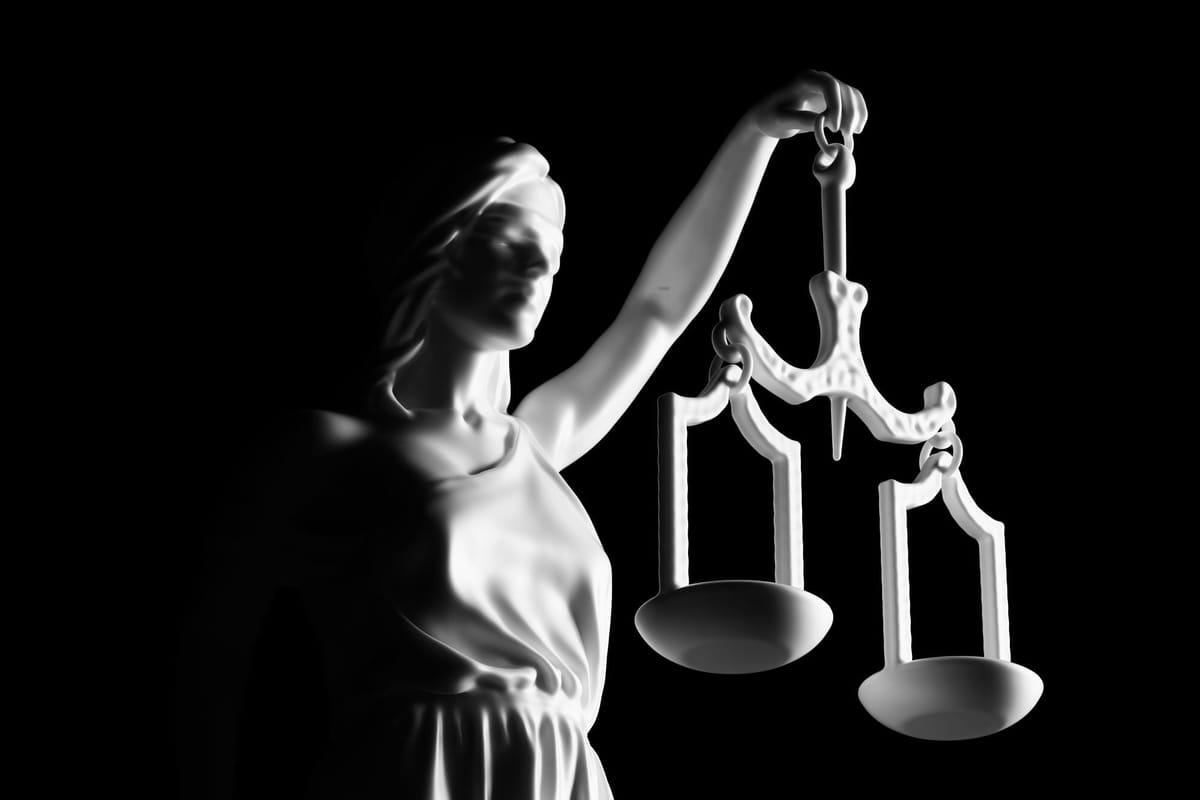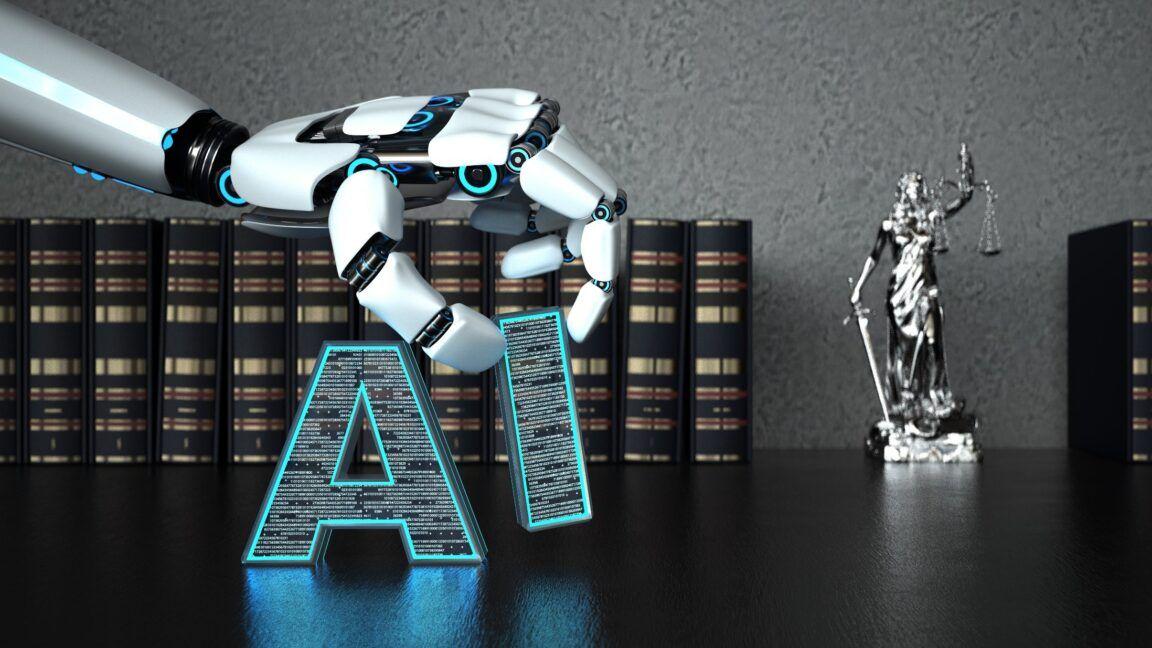AI-Generated Lawyer Avatar Sparks Controversy in New York Courtroom
2 Sources
2 Sources
[1]
Man Tries to Use AI-Generated Lawyer in Courtroom, Judge Unhappy
A judge was left unimpressed after a plaintiff attempted to use an AI-generated lawyer in the form of an avatar in a New York courtroom. 74-year-old Jerome Dewald got permission from the court to play a video but didn't specify it was AI-generated. As soon as the video started playing, Associate Justice Sallie Manzanet-Daniels intervened. "Now may it please the court, I come here today a humble pro se before a panel of five distinguished justices," says a well-heeled AI avatar named James. "Is this ... hold on? Is that counsel for the case?" Manzanet-Daniels asks. "That? I generated that," says Dewald who is sitting opposite the bench. "That is not a real person." "It would have been nice to know that when you made your application," Manzanet-Daniels says to Dewald. "You did not tell me that, sir." Manzanet-Daniels later chastised Dewald for the stunt, saying "You are not going to use this courtroom as a launch for your business." Dewald, who operates a startup called Pro Se Pro [a pro se is someone who represents themselves], says he wasn't trying to promote a business but genuinely wanted the avatar -- which came from a company called Tavus -- as an aid to help him through proceedings. He wanted the avatar to look like himself but "had some technical difficulties getting it completed," he tells NewsNation. Dewald instead used James which, he jokes, is "much more handsome than I am." Dewald has since written a letter of apology to the court. He tells The Register that courts view AI skeptically because of known issues with the technology; such as its tendency to "hallucinate" and give out false information.
[2]
Judge Goes Ballistic When Man Shows AI-Generated Video in Court
A 74-year-old entrepreneur played an entirely AI-generated video of a male avatar to address the judge during a court appearance on his behalf. And as The Register reports, the judge was extremely unimpressed by the stunt, and proceeded to chew him out. Plaintiff Jerome Dewald appeared before the New York State's Supreme Court on March 26 as part of an employment dispute with an insurance company called MassMutual Metro. "Now may it please the court, I come here today a humble pro se before a panel of five distinguished justices," said a well-groomed, sweater-wearing AI avatar -- who looks roughly three decades younger than Dewald -- in the video. But the video was interrupted almost immediately. "Is this ... hold on? Is that counsel for the case?" a confused associate justice Sallie Manzanet-Daniels asked. "That? I generated that," a proud and in-the-flesh Dewald responded from inside the courtroom. "That is not a real person," he clarified sheepishly. "It would have been nice to know that when you made your application," Manzanet-Daniels responded angrily. "You did not tell me that, sir." The use of AI in the courtroom has already proven highly controversial, with several lawyers being raked over the coals for using ChatGPT and not realizing it had come up with entirely fictional case law. In the case of Dewald, the judge tore him out for claiming that a medical condition -- a bout with throat cancer around 25 years ago -- had left him incapable of addressing the court directly since he already had "verbal conversations with our staff for over 30 minutes." "I don't appreciate being misled," she added. "So either you are suffering from an ailment that prevents you from being able to articulate or you don't. You are not going to use this courtroom as a launch for your business, sir." Dewald has a startup, called Pro Se Pro, which is designed to help litigants represent themselves by creating realistic video avatars. As Dewald later told the Register in an interview, the court had given him permission for a presentation. But they "were unprepared to see an artificially generated image," he said. "Extended speaking is problematic for me," he explained. Dewald was originally going to use a separate service called Tavus to create an AI avatar of his face, but ran out of time. (It's unclear whether Tavus and Pro Se Pro are in any way related). Instead, he "just used one of their stock replicas, that big, beautiful hunk of a guy that they call Jim." Dewald also acknowledged that the use of AI may end up hurting your case "because there's such a negative view of hallucinations and AI," he told the Register.
Share
Share
Copy Link
A 74-year-old plaintiff's attempt to use an AI-generated lawyer avatar in a New York courtroom backfires, raising questions about the use of artificial intelligence in legal proceedings.

AI-Generated Lawyer Causes Stir in New York Courtroom
In a surprising turn of events, a New York courtroom became the stage for an unprecedented clash between artificial intelligence and legal tradition. Jerome Dewald, a 74-year-old plaintiff, attempted to use an AI-generated lawyer avatar during his court appearance, catching the judge and court officials off guard
1
2
.The Controversial Presentation
Dewald, who was representing himself in an employment dispute with insurance company MassMutual Metro, had received permission from the court to play a video presentation. However, he failed to disclose that the video would feature an AI-generated avatar named James
1
. As the video began playing, the well-groomed, sweater-wearing AI avatar addressed the court:"Now may it please the court, I come here today a humble pro se before a panel of five distinguished justices"
2
.Judge's Swift Intervention
Associate Justice Sallie Manzanet-Daniels quickly intervened, expressing confusion and displeasure upon realizing that the "lawyer" was not a real person
1
2
. The judge chastised Dewald for not disclosing the nature of his presentation beforehand, stating:"It would have been nice to know that when you made your application. You did not tell me that, sir"
1
.Dewald's Explanation and Intentions
Dewald, who operates a startup called Pro Se Pro, claimed that his intention was not to promote his business but to use the avatar as an aid during the proceedings
1
. He cited a previous bout with throat cancer as the reason for needing assistance with extended speaking2
. However, the judge was unconvinced, noting that Dewald had already engaged in verbal conversations with court staff for over 30 minutes2
.AI in the Courtroom: A Growing Concern
This incident highlights the growing debate surrounding the use of AI in legal settings. Recent controversies have emerged involving lawyers using AI tools like ChatGPT without realizing the potential for generating fictional case law
2
. Dewald himself acknowledged the skepticism towards AI in courtrooms, mentioning concerns about "hallucinations" and false information1
.Related Stories
Aftermath and Apology
Following the incident, Dewald wrote a letter of apology to the court
1
. He explained to The Register that while he had initially planned to use an AI-generated avatar of himself, technical difficulties led him to use a stock avatar from a company called Tavus1
2
.Implications for Future Legal Proceedings
This case raises important questions about the role of AI in legal proceedings and the need for clear guidelines on its use in courtrooms. As AI technology continues to advance, the legal system will likely face more challenges in balancing innovation with traditional court practices and ensuring the integrity of legal proceedings.
References
Summarized by
Navi
Related Stories
Recent Highlights
1
Google Gemini 3.1 Pro doubles reasoning score, beats rivals in key AI benchmarks
Technology

2
Pentagon Summons Anthropic CEO as $200M Contract Faces Supply Chain Risk Over AI Restrictions
Policy and Regulation

3
Canada Summons OpenAI Executives After ChatGPT User Became Mass Shooting Suspect
Policy and Regulation








